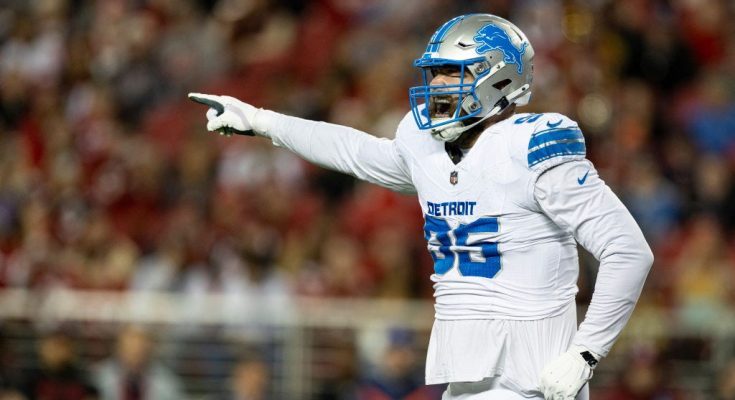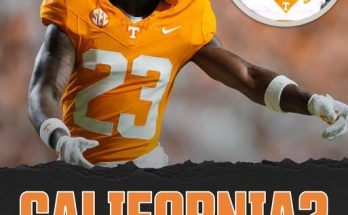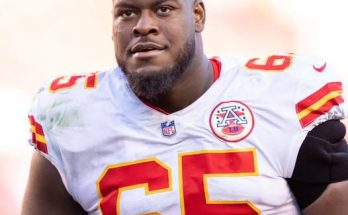The Detroit Lions have made it clear over the past two seasons that their mission is to build a defense that can contend with the NFL’s best offenses. But that mission took a heavy blow when they lost interior defensive lineman Levi Onwuzurike, a promising pass rusher whose upside had only started to show itself. Now, with Onwuzurike gone, the Lions are left scrambling—not in panic, but in calculated urgency—to find a new source of interior pressure, an element critical to any team that dreams of playing deep into January.
Interior pass rush is not just a luxury in the modern NFL; it’s an essential weapon. While edge rushers grab headlines and massive contracts, it’s the disruption in the middle that collapses pockets, breaks rhythm, and frustrates even the elite quarterbacks. Onwuzurike, when healthy, gave the Lions flashes of just that. His quick get-off, power in his hands, and developing array of pass-rush moves were starting to pay off. Though he battled injuries throughout his time in Detroit, the 2023 season offered glimpses of what he could be when healthy—an interior lineman who doesn’t just eat up space but actively threatens guards and centers on passing downs.
The problem now is not just the loss of his production—it’s the absence of a player whose growth was supposed to blossom into a pillar of the Lions’ defensive line. Onwuzurike was part of a broader plan, a piece of a puzzle that included Alim McNeill, Aidan Hutchinson, and others tasked with turning the Lions’ front four into a feared unit. That plan must now be revised on the fly, and the coaching staff—led by defensive coordinator Aaron Glenn—is already exploring contingencies.
There are in-house candidates to absorb some of the interior pass-rushing duties. Alim McNeill, for one, has made significant strides, particularly in the 2023 season when he became more than just a run stuffer. Trimming down and improving his conditioning, McNeill showed increased explosiveness and technique refinement. While not traditionally known as a pass-rushing defensive tackle, McNeill’s evolving skill set suggests he could contribute more in that area than he has in the past. But relying solely on McNeill would be unwise. He still thrives more in the run game, and overloading his responsibilities could diminish the quality of his overall play.
Brodric Martin, the second-year player out of Western Kentucky, is another internal name generating buzz. While raw, Martin has impressed in camp with his size and motor. At 6-foot-5 and over 330 pounds, he has the physical tools to dominate when properly coached and conditioned. Whether he’s ready to step into a meaningful rotational pass-rushing role is another matter entirely. The Lions might be intrigued by his ceiling, but they must be cautious not to ask too much too soon. Martin could be a long-term solution, but the urgency of the situation may force the Lions to seek short-term help elsewhere.
Veteran solutions exist in free agency, though the pickings are slim this late in the offseason. One name that keeps surfacing is Ndamukong Suh, a former Lion and a known commodity in terms of toughness, professionalism, and postseason experience. Suh, though nearing the end of his career, has shown in recent years with the Buccaneers and Eagles that he can still offer value in limited snaps. His familiarity with Detroit and the team’s culture could make him a viable stopgap, assuming both sides are interested. However, signing Suh—or any other veteran—would require financial maneuvering, something the Lions front office must weigh carefully given their long-term cap considerations.
Another path the Lions could pursue is the trade market. This is where things get interesting. Teams loaded at defensive tackle may be willing to move a player for the right price. The Lions could use some of their draft capital or surplus depth in other areas—such as wide receiver or linebacker—to negotiate a trade. Names like Jonathan Allen (Commanders) or even Maliek Collins (Texans) have come up in speculative circles, though no credible reports have confirmed actual contact between the teams. Still, Lions GM Brad Holmes has not shied away from bold moves in the past, and if the front office believes this team is on the cusp of championship contention, pulling the trigger on a trade may be the decisive action needed.
It’s also worth considering whether the Lions can scheme their way around this setback. Aaron Glenn has already shown creative flexibility in his blitz packages and front alignments. Bringing more pressure from linebackers or using stunts and twists could help compensate for the absence of a true interior pass rusher. Players like James Houston, known for his pass-rushing versatility, could be used creatively to generate interior pressure despite not lining up as traditional defensive tackles. It’s not ideal, but the Lions might find success through controlled chaos if personnel can’t fill the gap Onwuzurike leaves behind.
Losing a player like Onwuzurike is also about more than just stats and schemes—it’s about losing a player the team had invested in emotionally and developmentally. Coaches watched him battle through injury and saw his resilience, and teammates respected his work ethic. That kind of loss creates a void in the locker room, one that isn’t as easily replaced as a pass-rush grade or a pressure percentage. The Lions’ culture, which has been carefully rebuilt by Dan Campbell and company, must absorb that emotional hit while staying focused on the larger goal: winning.
The timing couldn’t be worse, either. The NFC North is up for grabs, with the Bears retooling under Caleb Williams, the Vikings uncertain at quarterback, and the Packers banking on Jordan Love’s continued growth. The Lions are widely seen as the division’s frontrunner—but that perception comes with pressure. This is not a rebuilding year anymore; this is a “prove it” year. The expectations in Detroit have shifted from hopeful to demanding, and that means any roster vulnerability—especially one in the defensive front—becomes a magnifying glass for critics and opponents alike.
Onwuzurike’s injury doesn’t doom the Lions, but it does complicate things. They still have talent, cohesion, and one of the most passionate coaching staffs in the league. But they also now have a question that must be answered, and soon: where does the interior pass rush come from? The response to that question could be the difference between a deep playoff run and another early exit.
For Dan Campbell and the Lions, this moment is a test. They’ve built a team culture centered around grit, next-man-up mentality, and physical domination. Replacing Onwuzurike will require all three. Whether through free agency, a trade, internal development, or schematic adjustment, they must find a way to keep opposing quarterbacks uncomfortable. Because in the NFL, if you can’t pressure the pocket from the inside, you’re playing with fire—and in Detroit, the fire burns hotter than ever with expectations soaring and patience running thin.
As training camp continues and preseason games approach, all eyes will be on the defensive interior. Not just in terms of who lines up where, but how the Lions respond to adversity. Championship teams aren’t defined by perfect seasons—they’re defined by how they react when plans change. This is one of those moments, and how the Lions handle it could reverberate throughout their entire 2025 campaign.
Ultimately, Levi Onwuzurike’s absence is more than just a depth chart adjustment. It’s a defining pivot point for a team looking to prove that the hype is real and that their ascent is not just a feel-good story, but a hard-earned reality. Someone—or something—must emerge to fill the void. Whether it’s a breakout season from a young player, a savvy signing, or a blockbuster trade, Detroit’s next move on the defensive front may well determine the ceiling of their season.



